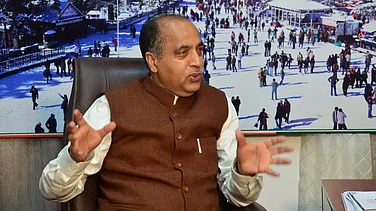Is there a legal avenue through which the cases can be moved out of Gujarat, as the victims are now demanding? "Technically yes. If the Supreme Court wants, it can take suo motu cognisance of the case and move it to a court outside Gujarat,'' says former Bombay High Court judge Hosbet Suresh. Adds Prashant Bhushan, senior Supreme Court lawyer: "Zaheera's point is correct. Given the situation in Gujarat, it is impossible to expect a fair trial. But the high court is not authorised to transfer trials from within its own jurisdiction.''
Even though the apex court is seized of the matter, there is no precedent in Indian legal history where a case has been moved out of a state. But there could well be a first time. Currently there are four public interest litigations (PILS) lying with the apex court. These include the PILS filed by artiste Mallika Sarabhai, Gandhian Devendrabhai Pathak, writer Mahashweta Devi, represented by ngo Action Aid and its head Harsh Mander, and one filed by journalist Kuldip Nayar and activist Teesta Setalvad, among others.
The PILS—which have been clubbed together—have a common thematic thread running through them and deal with the criminal justice system. The plea is that where there has been a gross miscarriage of justice, an independent investigation by an outside agency, preferably the CBI, is essential. Also special courts (or fast-track courts) should be set up for early disposal of cases and adequate relief and rehabilitation provided for riot victims.
Among the most detailed is Pathak's PIL. It has a list of six of the worst riot cases, including the Best Bakery case and the Naroda Patia massacre on the outskirts of Ahmedabad. "We are waiting to see what the apex court does. Then we will know how the case is going to move. In this case, even the National Human Rights Commission (NHRC) can move the Supreme Court for transfer of cases and order a fresh trial,'' says Aparna Bhatt, who is one of the main lawyers fighting this PIL.
The legal route is what most experts prescribe. They say merely arousing public opinion may not be enough. Says Action Aid's Raman Mehta: "It is important to have independent monitors. The Best Bakery case is an example. firs have no names, they are clubbed together and the prosecution case is practically non-existent. Like in Zaheera's case, it will have to be reopened. There should be fresh registration of unregistered cases. A lot of people have withdrawn cases under threat or have simply been ignored by the local police. These people need to be identified and provided protection.''
Time is of the essence. Lawyers and independent observers fear that the longer it takes for proceedings to move, the colder the trail would become. With the state government not in a tearing hurry, there can only be cause for more trauma for Zaheera and other victims like her.


















.png?w=200&auto=format%2Ccompress&fit=max)







